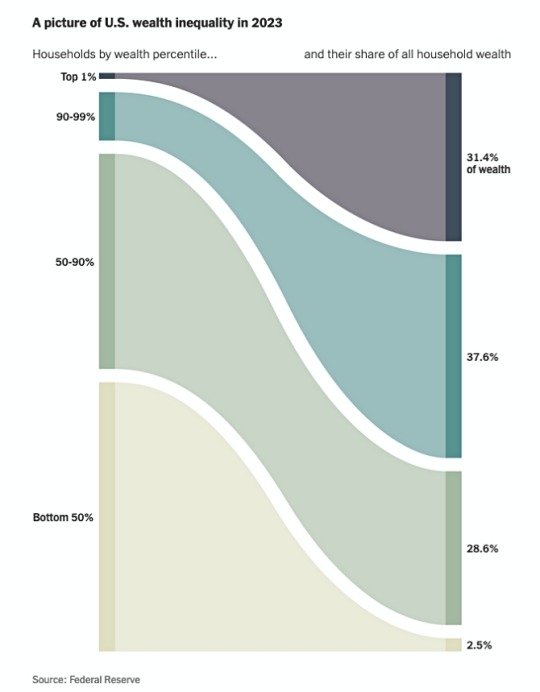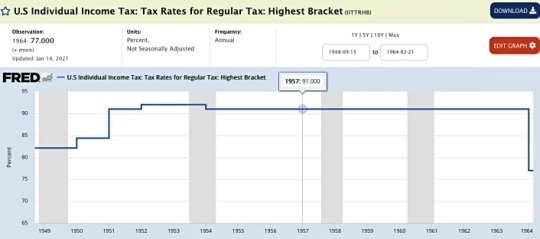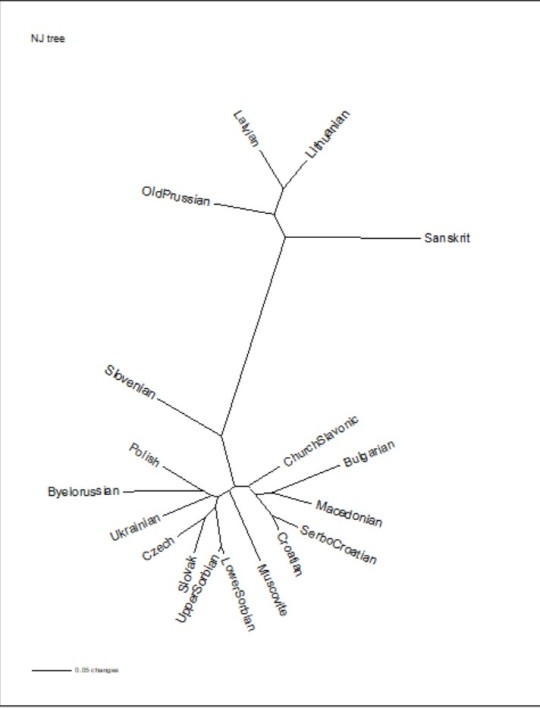#economics on main
Text
Being an economist on main again, soz...
So my last post got reblogged by people but I wanted, in true economist fashion, to really, truly, highlight why the current UK bullshit is so upsetting as a very normie, mainstream, working economist.
Economics is broadly split into two disciplines, microeconomics, which is basically the way the economy and individuals interact, and macroeconomics, which is how the economy as a whole-ass beast works. The main problem between these two disciplines is that a lot of rules of micro don't 'hold' when you get to the macro level, and vice versa. You might remember how economists always say that treating debt at country level the way we think about individual credit card or mortgage debt is wrong, that is a prime example of how micro and macro rules don't hold. Things, generally, are so much more complicated at macro level.
Because of this, most economists specialise in one or the other. I am a microeconomist, specifically a health economist, and while there is some macro stuff, generally we treat health spending as a micro level problem, i.e. we're fairly sure that if we make decisions at an individual level, the macro will look after itself (the pennies will look after the pounds).
(Now, this is a simplification because you can rightly say, cicak, my friend, the NHS is falling apart, to which I will say: you is right, but it is because of 'externalities' rather than the conceptual decision making process inherent to microeconomics, to wit: over a decade of deliberate underfunding, a global pandemic, and Brexit have all led to NHS problems. The solution to all of these problems can be understood in micro terms: more money, applied where it is most needed, as part of a plan, with measurable goals and targets. Ultimately: politics.)
Anyway, tangents aside, microeconomics is pretty ideologically stable. Most mainstream economics is based around social welfare theory, which is that people do things for reasons that bring them the most benefit, and they broadly, mostly, in aggregate, do that to an acceptable level of efficiency. If you would like to argue about this: please proceed to your nearest economics masters course, you'll fit right in.
The main difference between the schools of macro is: do individual changes make differences at the macro level? Or do only governments really make a difference at macro?
This used to be a BIG ARGUMENT back in the 20th century, mostly around what should be done with the Great Depression in 1929. Basically, should you just let the economy burn to the ground, and see what comes out of it? Or should governments stop the economy from collapsing? The Austrian school thought burn it down, Keynes thought: government. Keynes, broadly, won. There was a 2nd world war, and Keynesianism was refined. Then, it went out of fashion. Then it came back into fashion. A lot of this depends on the concept of 'full employment', the 1980s, economic stability, boom and bust, but these days, most macro policy is described as Neo-Keynesian and is considered broadly settled on government finding a balance between price, inflation, employment, growth and stability. This is done through monetary policy and fiscal policy, stuff government does.
But then you've got your Austrians, your Hayekians, your Mises. They think that government should butt out of the market, and that individuals are far more important. Individuals, especially rich individuals, should be allowed to do what they want with their money, and everything will be better if government just stops taking their money and lets the free market solve it. This is why the first thing Truss & friends did was cut the top rate of tax. Less money for government (bad with money) but more money for the people that they believe are already good with money, because they have a lot of it, see?
Modern Austrians believe that individuals are the only thing that matter at macro level. There are no groups of people, only individuals. Credit is bad and the real cause of business failure. Stability can be gained by pegging currencies to gold reserves. Oh and as we can't model all 67 million people in the UK, theres no point even trying. It'd just be chaos. Even model nerds say 'all models are wrong'. So no point. Just do it and be a legend. It'll all work out in the end. Just trust us. OBR? Have a beer. The numbers don't real.
Instead, everyone fucking PANICKED. Because as I said, 99% of economists are in the business of predicting the future. The future suddenly got unpredictable. No one saw the top rate of tax being cut coming. There's no economic justification for it, no 'dont worry, it'll be funded by XYZ'. Just Austrian bullshit of 'here comes freedom lads.' No one is talking to each other. A man credited with keeping all the fiscal, monetary and political systems moving has been fired because it turns out the chancellor didn't like that he worked from South America. The Bank of England are furious. The markets are in peril, but Kwarteng's bezzie mates at his cocktail party bet that the pound would crash, and are rolling in it. Everyone loves a run on the pound, it seems.
So yeah there's some more of why the uks economy kind of exploded this week.
#uk politics#economics on main#economist on main#apols i will shut up about this#but some lib dem man at church insulted me today#and no one hates lib dems like a former lib dem#ie me
87 notes
·
View notes
Text
Robert House watching The Courier rip all the copper wiring out the walls of the Lucky 38

#omw to sell it as scrap at Mick and Ralph’s#or for the gun runners maybe#oc: wesson-smith kelly#he’s awful he’s the worst he’s my little pookie bear#no time to listen to your plans or views on social economics#need money to loose at the slot machines#you bet the wrong horse in this race#no main quest side tasks only#I am in your walls stealing your loft insulation#do not talk to me#crime time 😎#all bundled up in the backseat of The Highwayman#the custom license place says $CAM1IN#fallout new vegas#fallout#courier six#courier 6#Robert house#fallout memes#fallout nv memes#fallout nv#so many tags#babygirl why are we talking about philosophy#no helgian dialects here I’m about to send ghoulies to the moon#exploding house with my mind#my courier is the worst I love him I hate him I would not let him in my house#fallout new vegas memes
6K notes
·
View notes
Text

day 99
i have NEARLY finished the skirt for my ren faire fit i just gotta get a few finishing details added and also get the undershirt bleached (bc i got a bunch of makeup on it at last years fair and shit Stained) but THEN i can show yall the final fit!!
#day 99#year 5#aradia megido#homestuck#its gonna be cute#i was so fucking stressed abt this one because like.#i bought my fabric and i was like oh yeah dude this is toooootally more than enough for a circle skirt#went to finally cut things#realized i only had enough for a half-circle skirt and it would end up with a bunch of weirdly-shaped scrap at the end#(ie i would have to do a bunch of weird piecing to make the waistband and pockets and such)#and like honestly a half-circle skirt was NOT enough volume for me i need my skirts swooshy#so i was like well. okay. i think i can optimize my fabric usage more if i draft a paneled skirt#but this of course required..... Math.#and unfortunately. i was an art major. so. there was a lot of struggling#BUT I DID IT. THERE WAS STILL A LIIIIITTLE BIT OF PIECING THAT HAD TO BE DONE BUT IT IS MINIMAL AND CAMOUFLAGED PRETTY WELL#and also this is for a ren faire primarily bc i dont wear a lot of skirts in day-to-day#SO. economical fabric usage is absolutely period accurate. even though none of the rest of my outfit or techniques are.#basically all thats left for me to do is add pockets and the closure at the back#i meant to add the pockets as i was doing the main construction but i got too excited and forgor#so theres gonna be some seam ripping but nothing too bad
117 notes
·
View notes
Text
The US has asked China to urge Tehran to rein in Iran-backed Houthi rebels attacking commercial ships in the Red Sea, but has seen little sign of help from Beijing, according to American officials.
But US officials said there was little evidence China had put any pressure on Iran to restrain the Houthis, beyond a mild statement Beijing issued last week calling on “relevant parties” to ensure safe passage for vessels sailing through the Red Sea, a critical shipping route for global trade.
On Wednesday, the Chinese foreign ministry said Beijing was calling for a stop to “disturbance to civilian ships” and had “been in close communication with various parties and worked actively to alleviate the tension in the Red Sea”.
However, in veiled [?] criticism of the US and UK attacks on the Houthis, the ministry urged the “relevant parties to avoid adding fuel to the fire”, adding that the UN Security Council had “never authorised the use of force by any country on Yemen”.
The Red Sea tension was also a “spillover” from the Gaza conflict, which should be ended as soon as possible, the ministry said.[...]
US officials had hoped Beijing would take action because it viewed the Houthi attacks as a menace to its own commercial interests, given that the Red Sea was a critical route for Chinese exports to Europe.[...]
The Chinese embassy in the US said [...] China was concerned about the “escalating tension” in the Red Sea. The embassy said it served the common interests of the international community and that China urged “relevant parties to play a constructive and responsible role in keeping the Red Sea safe and stable”.
23 Jan 24
Several Chinese shipping lines have been redeploying their vessels to serve the Red Sea and the Suez Canal, in what analysts have said is an effort to exploit China’s perceived immunity from the Houthi attacks that have driven most other operators out of the area.
These smaller Chinese lines have been serving ports such as Doraleh in Djibouti, Hodeidah [sic] in [Ansar-Controlled] Yemen and Jeddah in Saudi Arabia, all of which have faced big falls in traffic as international container shipping lines have rerouted to avoid potential attacks by Yemen’s Houthi rebels.
Among the shipping lines redeploying its fleet is Qingdao-based Transfar Shipping, which on its website describes itself as “an emerging player in the transpacific market”[...]
Leaders of the group have said that they will not attack vessels associated with China or Russia[...] as long as they have no Israeli links. The US has asked China to urge Iran to rein in the Houthis, without apparent success.
24 Jan 24
#'hodeidah....has faced big falls in traffic [in response to] attacks by the houthis' is so funny#hodeidah's one of the main cities the anglos are bombing#its one of the biggest ports in Yemen#its one of ansars main economic centers#lol never change ft#just assume everyone reading this goes 'ah foreign name *nodding sagely*'
65 notes
·
View notes
Text
The fun Grey Area of buying offbrand fast fashion and fast-adjacent fashion, but then wearing it for years because you bought it for Broke reasons or Style I Love On Sale reasons.
Like... yeah, I do have some athletic wear and socks from Costco, some shirts from Hot Topic, even some blouses I bought from H&M before I learned how damaging it is.
But most of them are machine-washable cotton so I can wear them for uhhhhh [checks] I've still got Patagonia shirts from fifteen years ago, so I'll be wearing them that long if they don't fall apart from Lesser Quality and Rough Use
(Obviously, Patagonia is intended to last much longer than the general cheap-ish brands I'm talking about, but I needed an example of a known brand I've definitely had for that long to use as an example of how long I'd keep a shirt once I get it. There are others that I've had for a while but can't actually remember when I got them, like the Tinkerbell shirt.)
(I also do have some of my mom's blouses from the late 90s/early aughts so. I clearly don't care overly much about things going out of fashion.)
Like... I could do better than I am, but at least I'm doing better than the average?
#personal#phoenix talks#economics#fast fashion#I do try to limit myself to organic materials outside of Specific Items (namely athleticwear and rain jackets) so at least there's that?#IDK I try not to get rid of anything unless it doesn't fit or has a sensory issue#rare exceptions include merch for things I am no longer comfortable with owning (HP and SnK are the main examples)
153 notes
·
View notes
Text
“You have done the highest honor of the Creed: Saving a foundling.”
I take umbrage with this statement in the larger context of the show this season because Mando still has yet to have what I think is a pretty significant conversation with the Armorer concerning why he removed his helmet in the first place since that ⬆️ was precisely why he did it
This season has largely brushed past one of Din’s biggest internal conflicts by never showing the audience how he feels as an exiled member beyond him asking how he can atone, not discussing with the Armorer why the transgression was done or in what context— which they apparently didn’t have to address because hey, look, the kid’s back with him again, oh also we’re not going to talk about that despite the Armorer telling him to take the kid back to his own kind in season 1— making it barely an inconvenience to ‘redeem’ himself in the end anyway, and by overshadowing his ritual redemption by knocking him out when he goes into the waters and having him sink to the bottom, having to be saved by Bo-Katan (when we still don’t know why she saved him at all), AND by having his return to the covert and Armorer be overshadowed by Bo-Katan’s out of place induction into the covert.
If they want to credit Bo-Katan with ‘saving’ the Mando kid because she headed up the hunting party even though Din was the one to actually grab the kid in the end, fine, whatever, but it is also the most overt way to again show that everything of value that Din has done this season has still been pushed to the side in favor of showcasing Bo-Katan
Unless they’re leading up to Din having some ego issue regarding Bo-Katan’s popularity and place within the covert because of how much he’s being shoved aside (which is entirely out of character for him), I’m not sure why they aren’t making him and his character more of the focus of the season. We’re not getting anything from him regarding his feelings or direction in terms of the bigger picture, which is why all of the episodes feel like filler— They’re achieving plot points like a checklist instead of showing us how Din feels about anything by not tying the emotional stakes to the physical ones. There’s no tension or narrative weight to any of these actions. His dialogue regarding the Creed, his redemption, and teaching and bonding with the kid (his character’s two main focuses) has been factual and exposition-y without feeling like his story is being told.
#the mandalorian#the mandalorian spoilers#The Mandalorian critical#din djarin#bo katan kryze#idk this is messy but it was also my biggest beef with an episode within a show that has already founded this season—#— on so many other storytelling and narrative issues#there’s only eight episodes in each season. you have to be judicious/economical with where you spend your time#and we still don’t know what the main STORY of this season is supposed to be#season 1: protect the kid and stay alive#season 2: find other Mandalorians in order to find the kid’s people to return him to where he belongs#season 3: ?? not really focusing on the Mandalore or dark saber plot bc Bo katan doesn’t care so she’s not chasing him as the villain#he’s not really the main character driving any of the action or the story. Bo-katan is.#and unfortunately I think it’s a little late in the game to establish this as an ensemble show.#if you wanted that you should have established it in season 1
140 notes
·
View notes
Text
Lysenkoism, eugenics, and the politicization of "science"
Lysenkoism, in short, was a disproven scientific theory pushed by Soviet biologist Trofim Lysenko which rejected the theory genetics in favor of a "class-based" model and inherited characteristics. The material effect of the USSR's endorsement of this theory played a small roll in the famines of 1933 and during the Great Leap Forward**. It's one of the biggest missteps in the soviet socialist experiment. The question is, then, why was this model adopted at all (even with Stalin's own doubts of the theory), especially considering later Soviet scientific successes and pioneering.
One of the gravest byproducts of codifying the theory of natural selection is the invention of, first, phrenology, then eugenics. This pseudoscience was the exact "scientific" backing needed to support a growing white supremacist liberal ideology. Eugenics stipulated that the "master race" (white people*) had superior genes compared to everyone else and that poverty, intelligence, mental illnesses were solely determined by your genetics and therefore, we must improve those genetics through forced sterilization, marriage licenses, or in the case of the nazis, genocide. The class nature of eugenics is clear. It is the racial "science" of the bourgeoisie and targeted the poor, POC, and disabled.
Lysenkoism, politically speaking, was diametrically opposed to the concept of eugenics. The rejection of mendelian genetics negated the idea that there is a master race or a poor gene (both things that western eugenics propagated and continue to). However, we know that both "scientific" models are incorrect. The USSR's implementation of Lysenkoism contributed to a larger snowball that culminated in the disastrous consequences of 1932 and, arguably, 1950**. But its important to see that both the USSR and China abandoned the theory after it proved incorrect. On the other hand, eugenics continues to play a role today, just cloaked under the thin veil of "IQ"; dig into many social austerity policies and ultimately, the root is "you poors must have the poor gene and cannot save" or some shit. Lysenkoism, on the other hand, is a stark reminder to stay vigilant for dogmatism.
Another aspect of this story is the "politicization of science". Now, I don't mean "politicization" as many liberals say (e.g., women in my vidya games??? POLITICAL!!!; trans people exist??? POLITICAL!!!; nor its more serious type of people complaining of scientists going into politics to enact societal change, i.e., with climate change (both types of complaints are highly idealistic and I will explain)), but rather the dogma of assigning political-economy to scientific models. Of course, many many MANY models CANNOT exist in a vacuum. Climate change science is one of these; the interconnections and intersectional aspects of the thousands of varying metrics contribute to this scientific model.
On a more metaphysical level, science itself is informed by the political-economy it takes place in. Who gets funding to research what is also highly political-economic. However, there are also more immutable aspects of science. Genetics have no political flavor. The conservation of energy cares not for class distinctions. Like statistics, science, as a collection of models of the observable universe, is a tool that can be used to inform material change. And like statistics, where the conclusions you draw from data are highly political-economic, the models constructed from poorly done science are also highly political-economic.
#*of course we must remember that whiteness was invented during the expansion of capitalism as an ideological justification#for the enslavement and genocide of native peoples and chattel slavery from Africa and elsewhere.#mmp#idrk if this has any political-economic water but it made sense to me#pls amend or append as you see fit#**A comrade pointed out that though lysenkoism did contribute to these historical famines#the major causes and contributors were many and interconnected including weather policy implementation and others#while the topic of these famines are nuanced and deserve a post in themselves they are not the main focus of this thesis
9 notes
·
View notes
Text
i love to say "if california wasn't so expensive" as if where im living right now isn't both more expensive and less accessible than ANY city in california or almost the entire country of america
#they're not kidding about the canadian housing crisis babes!!!#it's not so much the prices as much as bcuz the land we built on isnt like.... able to be “changed” in the way that mainland is#they physically cannot build outwards and grow the location even if people move here. it's a limited amount of space and its expensive#and a lot of canadian land is protected under government acts so it isnt as simple as like moving 300km to the west#because there ISNT 300k to the west. there isnt anything there. its either all isolated forests or oceans#vs america which as i understand it has towns and land avaliable everywhere. small towns are a THING and they arent EXPENSIVE#moving to a small town “because its cheaper” is laughable here#probably why america is a much more sucessful country than canada in terms of global reach and economic growth#so basically the main issue is immigration and american health insurance being slightly crazy#and also Money#txt
7 notes
·
View notes
Photo





What are you doing? The Professor said not to watch the TV. If the leader says turn it off, we turn it off.
Berlin & Tokyo
Episode 6, Money Heist: Korea - Joint Economic Area (2022)
#money heist#money heist: korea#money heist: korea - joint economic area#jeon jong seo#park hae soo#edit: money heist korea#kdramaedit#kdramadaily#dailynetflix#netflixedit#i cannot believe they're my next brainrot couple#berlin and tokyo main slayers!!!!!#it should be illegal for great actors who are both hot to have chemistry and not kiss#i'm sorry i have 2 brain cells and berlin in a suit killed both of them#by:myspringmp3#editcheenee
373 notes
·
View notes
Text

^^^ This is why people think things are getting worse. 1% of the US population owns 31.4% of the nation's wealth.
This is the result of massive tax breaks for the filthy rich which began under Republican Ronald Reagan in the early 1980s, were boosted twice by Republican George W. Bush in the 2000s, and got a big boost under Republican billionaire Donald Trump.
David Leonhardt at the New York Times writes...
The simplest explanation for the shift is that the old economic approach hasn’t worked very well for most Americans. Starting in the 1980s, the U.S. moved toward an economic policy that’s variously described as laissez-faire, neoliberal or market-friendly. It involved much lower taxes for the wealthy, less regulation of business, an expansion of global trade, a crackdown on labor unions and an acceptance of very large corporations.
The people selling this policy — like Milton Friedman, a Nobel laureate in economics — promised that it would bring prosperity for all. It has not.
Incomes for the bottom 90 percent of workers, as ranked by their earnings, have trailed economic growth, and wealth inequality has soared. For years, Americans have told pollsters that they were unhappy with the country’s direction. Perhaps most starkly, the U.S. now has the lowest life expectancy of any affluent country; in 1980, American life expectancy was typical.
Conventional wisdom rarely changes quickly. Friedman and his fellow laissez-faire intellectuals spent decades on the fringes, before the 1970s oil crisis and other economic problems caused many Americans to embrace their approach. But conventional wisdom can change eventually. And after decades of unmet promises about the benefits of a neoliberal economy, more people have grown skeptical of it recently.
Massive tax breaks for the filthy rich as a means of boosting economic growth for all was once regarded as fringe economics – until Ronald Reagan took office. Even the man who became Reagan's vice president referred to such a policy in the 1980 primaries as "voodoo economics" – but to no avail. It has largely overshadowed economic policy for the past 40+ years.
There were only two exceptions. In 1993 when Democrat Bill Clinton raised taxes on the filthy rich. The economy soared and the 1990s became the most prosperous decade since the 1950s. And in 2013 Democrat Barack Obama let the Bush tax breaks expire. Sadly, Trump and the then GOP majorities on Capitol brought back the Bush tax breaks in 2017 and have been ironically blaming poor people for the subsequent rise in the national debt.
As president, Trump often contradicted his own populist rhetoric. (His one big piece of legislation was a tax cut that mostly benefited the rich.)
There needs to be a repeal of the Reagan-Bush-Trump tax giveaways to billionaires like Elon Musk.
One stat which Republicans don't like hearing is that in the mid 1950s, the highest federal income tax rate was 91%.

Republicans are nostalgic about some stuff about the 1950s like Jim Crow laws and suppression of women and gays. But they don't talk about the federal tax rate on the filthy rich which helped build the Interstate Highway System and provided low cost college education to the masses.
We don't need to go back to a rate of 91% for the Musks, Trumps, and Zuckerbergs. But just under half that rate would dramatically restore economic balance in this country. And the ONLY way to get there is to keep promoting growing Democratic majorities in Congress and electing Democratic presidents. Votes for third party losers are about as helpful as used toilet paper.
#usa#wealth inequality#income inequality#republican tax breaks for the filthy rich#voodoo economics#ronald reagan#george w. bush#donald trump#billionaires are the main beneficiaries of republican rule#prosperity = higher taxes on the rich#vote blue no matter who#election 2024
13 notes
·
View notes
Text
I know I wouldn't make it in Honor Mode bc even when I decently manage a difficult combat or conversation there's always this horrid little worm in my brain going "I bet. if I reloaded & ran it again. I could do even BETTER"
#i fought that awful spider matriarch ~5 times before i was satisfied w the results#trying to be increasingly economical re: nonrecoverable materials used & companions downed etc#i'm v normal & mentally well btw#bg3#baldur's gate 3#i fought dror ragzlin 3 times twice w/ wyll along & BOTH TIMES!! i forgot to do bind pact weapon before combat#but i'm being sooooooo brave about it#& before you claim this is not in the spirit of the game consider: my main objective is not overcoming great martial challenges#but rather running around in a fantasy world casting magical spells talking to rats & kissing hot people
7 notes
·
View notes
Text
abhi-abhi dhang se finals ka syllabus dekha maine 🤡
#bhai accounts ki puri book aa rahi hai main mar jaungi hayee bhagwan bacha lee 😭😭#bst ka toh koi ata-pata hi nhi 🤡👍 abhi tk skl main bhi syllabus pura nhi kiya hai vo bkl ne#economics ka paper aadha chodke na aajau bc-#applied maths ka toh pucho hi mat bhai 😃🙏#. ༉‧₊˚ — hana’s random !
8 notes
·
View notes
Text
i mostly oppose makeup on grounds other than this, but to be honest, it's unhygienic. i roll out of bed and wash my face...it is clean and bare all day, no powders or creams or tints. i don't poke anything into my eyes on a regular basis; i don't have to wash bacteria or residue out of makeup brushes. washing my face is quick, easy, and painless (no scrubbing involved, no need to rub at my eyes to wash off mascara or eyeliner). yet makeup is seen as more hygienic and clean than a bare face! what a lie we've all been sold.
#my main gripes are economic social psychological and practical#but i think about this dimension too#your acne is more hygienic on full display than under concealer!!!!
393 notes
·
View notes
Text
you ever read a paper that has such a bad faith-take on a female main character that you know without looking that it’s by a male author
#besides being really bad faith he’s also. breaking every rule of literary analysis I’ve ever learned#like yes absolutely you’re allowed to do biographical readings#but he’s mixing his readings in a way where he’s reading jane eyre as not only autobiographical for Brontë#but is also dragging in the main characters of all her other works? and reading jane through them?#without ever differentiating between reading the book psychoanalytically fo bronte or reading it as part of the oeuvre#furthermore he’s acting like jane is the author. newsflash she’s a character and a narrator#additionally! he’s treating jane as a person with free will instead of as a character#paradoxically he’s doing all of the above at the same time#and this is all in addition to reading Jane as duplicitious selfish and evil#and blaming her for being afraid of poverty as a physically emotionally and economically abused nine year old#cool story bro I’m not sure we read the same book 👍
9 notes
·
View notes
Text
A proposal to add new tax brackets and increase rates for wealthier Mainers was vetoed by Gov. Janet Mills on Friday.
In her veto message, Mills listed multiple reasons for her veto. Because the bill started as a concept draft — a document without substantive text that is often used as a placeholder before the full bill language is drafted — she said the legislative process didn’t have enough transparency or opportunity for public input. She also said the bill wouldn’t provide meaningful relief for low-income taxpayers and fears it would have unintended consequences for the state budget.
The bill, LD 1231, passed in the Maine House of Representatives 88-57 and in the Senate 22-12. The proposal would have increased the income threshold for current tax brackets starting in 2025 and created three new income brackets with higher tax rates for wealthier residents.
It was put forward by Rep. Meldon Carmichael (R-Greenbush) because he said he wanted to specifically help out middle class workers, who he described during the House debate as a “segment of hardworking Maine families that have been continually left behind economically” because of circumstances out of their control.
Carmichael quoted the governor, who in her annual address said “the state of the state is strong,” but, he added, “the state of hard working families is not.”
Under LD 1231, most earners would have seen the same or lower tax rate while those at the top of the pay scale would contribute a greater portion of their income.
Currently, any single individual making more than $58,050 is taxed $3,686 plus 7.15% of excess over that amount. Couples filing jointly making $116,100 or more are taxed $7,371 plus 7.15% of excess over $116,100.
Under the proposal, there would be three new brackets for individuals making $144,500 and more that would be taxed at progressively higher rates.
Mills, a Democrat, said she shares the “worthy goal” of reducing the tax burden for lower-income people, but she said this bill wouldn’t actually achieve that because of the state’s many exemptions, deductions and credits that more people have become eligible for in recent years.
“The cumulative impact of these changes is that low-income individuals in Maine have little or no tax liability,” Mills said in her veto message. “As a result, this bill would have little or no impact on the taxpayers it is intended to benefit.”
In a statement following the veto, Garrett Martin, president and CEO at the Maine Center for Economic Policy, also said there wouldn’t have been much benefit to low-income taxpayers, “but asking the wealthy to pay more was a step in the right direction.”
“When multimillionaires pay the same income tax rate as a Mainer making just $62,000 a year, it should be obvious that change is needed,” Martin said. “The Maine Legislature should continue to work towards a fairer tax code, and Governor Mills should join the bipartisan effort to do so.”
However, Mills said she fears the bill would have had unintended consequences for the state budget by increasing the reliance on less than one percent of taxpayers. She said those taxpayers’ incomes are “disproportionately composed of highly volatile sources such as capital gains and business income.”
“At a time when we are already keeping a close eye on Maine’s budget because of increased spending and flattening revenues, there is concern from budgeting officials that relying on more volatile forms of revenue may inadvertently jeopardize the State of Maine’s fiscal standing,” she said.
#us politics#news#maine#maine morning star#2024#Gov. Janet Mills#taxes#tax brackets#tax the rich#tax the 1%#tax the billionaires#tax the wealthy#LD 1231#Rep. Meldon Carmichael#Garrett Martin#Maine Center for Economic Policy#Maine House of Representatives
3 notes
·
View notes
Text

Me and the Besties
#I'm shaking with laughing#first of all because sanskrit IS related to Lithuanian but the way it's here is just-#second of all because the main purpose of a phylogenetic tree is to make everything look easier.#this one doesn't make everything look easier.#which is probably correct way because languages relations are a mess based on economics and multiple genocides#anyway muscovite language should be in the other place#also Belarus people would have killed the tree's author for putting them 'was made from Polish'
12 notes
·
View notes